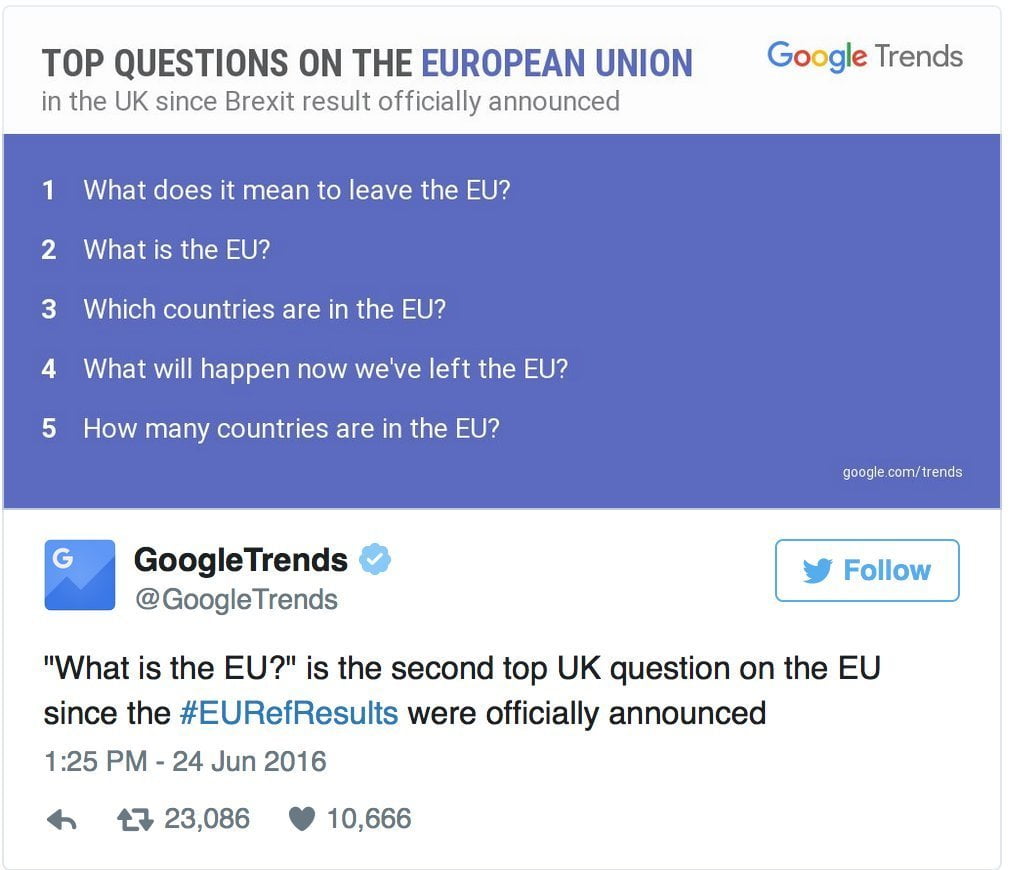… “except for all those other forms that have been tried from time to time”, as Churchill reminded us.
People are still talking about #Brexit, as one might expect given the severity of some potential consequences of the United Kingdom withdrawing from the EU. But some people – including one that I have great respect for, Prof. A.C. Grayling – are arguing that UK Parliamentarians should vote against any motion to trigger Article 50 of the Lisbon Treaty.
Article 50 would start the official clock on an EU exit, whereas what we have now is a non-binding advisory reflecting the will of the voters. As the English lawyer and respected legal commentator David Allen Green puts it:
What happens next in the event of a vote to leave is therefore a matter of politics not law. It will come down to what is politically expedient and practicable. The UK government could seek to ignore such a vote; to explain it away and characterise it in terms that it has no credibility or binding effect (low turnout may be such an excuse).
Of course, it might not be politically possible for Parliament to reject the vote, even if the majority of parliamentarians wanted to, given that doing so would be acting expressly against what the voters have asked for.
A separate question is whether the voters knew what they were doing. Another is whether the referendum was constructed appropriately, in that you might want to require a larger (perhaps 2/3) majority for a decision of this magnitude.
My concern is that you can’t like democracy only when you happen to agree with the decisions taken by an electorate. To say that voters didn’t have access to all the information they needed to make the “right” choice here is to my mind false – they had the information, but some of them perhaps didn’t access it until too late, and some of them perhaps never thought about it enough.
No amount of “buyers remorse” proves the point that the will of the people was not expressed in the #Brexit vote, whether or not you regard the people as fools or sages for making the decision they did.
So I’d disagree with Grayling here. A choice has been made, and according to the rules of democracy, Parliament would be acting without a mandate if it were to ignore the vote. Sometimes the electorate makes decisions that suit you, sometimes it doesn’t – you don’t get to change the rules when you don’t like the outcome.
If I were supreme leader, I’d want to ignore the will of the people in this case, as well as in many others. And that, in short, is why the majority vote gets to decide – because even when “they” make the wrong choice, you’re still protected from having to suffer the whims of a dictator.

